|
|
|
Plenary Lectures
She graduated in Pharmaceutical Chemistry and Technology in 2008 and defended her PhD in Biopharmaceutics-Pharmacokinetics in 2012. From 2012 to 2019 she was Postdoctoral Fellow at the University of Parma. From October 2019 she is Docent (Adjunct Professor) in Drug Delivery at the University of Helsinki (Finland). She is currently Scientific and Technical Manager of Micro4Nano (https://www.micro4nano.unipr.it/), an EU funded project (H2020-MSCA-RISE). She serves a s counsellor of the Controlled Release Society - Italy Local Chapter. Silvia Pescina is co-author of 48 papers published in international peer-reviewed journals. Her research activity is mostly focused on ocular drug delivery, with emphasis on development and characterization of topical dosage forms, set-up of in vitro and ex vivo models for studying the ophthalmic delivery of conventional and biotech compounds, evaluation of chemical and physical absorption enhancers.
She graduated in Pharmaceutical Chemistry and Technology and works for many years Dr Perteghella worked in Advanced Therapy and Regenerative Medicine fields with a particular focus on the development and formulation of tridimensional scaffolds based on natural biopolymers; these scaffolds were developed to deliver both mesenchymal stem cells and their extracellular vesicles as drugs. Furthermore, her activity was related to the formulation of nanosystems, both nanoparticles and nanoemulsions, for bioactive hydrophilic and hydrophobic compounds loading. Nanoemulsion development aimed to obtain formulations effectively for nose-to-brain administration of drugs which must reach central nervous system for pharmaceutical effect.
Director of Basic Sciences Laboratory, School of Health Sciences, University of the Peloponnese, Greece, she received her bachelor’s in Biological Sciences (2001) from the University of Patras and her MSc (2004) in Neuroscience from the Crete University School of Medicine. She obtained her PhD in Neuroscience in 2007 at the same University working on identifying molecular therapeutic targets for neurodegenerative diseases. She carried out postdoctoral research training in different laboratories in the fields of Cardiovascular and Pulmonary Pathophysiology (2008-2011), Biology and Therapeutics of Thoracic Malignancies (2011-2017) and Nanomedicine (2018-2021). Dr. Marazioti has published over 40 research publications in peer-reviewed Journals with >2.000 citations, 7 book chapters and has multiple participations in International Conferences. Her current research interests are focused on the study of the biology of thoracic malignancies and the development of novel therapeutic approaches, related both to the identification of new molecular targets and to the application of targeted and bioinspired drug nanocarriers.
He received graduate training in Europe and North America and his doctoral degree from University Paris V, Paris, France, in 1997. His research interests have been focused on the modified release of drugs and the use of nanoencapsulation to improve the bioavailability of peptide and protein drugs.
After a Doctor of Pharmacy diploma, she joined the group of Professor Hatem Fessi at the University of Lyon, where she completed a master’s degree in medical and Biological Engineering (2000-2001) and a Ph.D. in Pharmaceutical Nanotechnology (2001-2004). After a postdoctoral stay at the University of Geneva, she joined the University of Paris-Saclay in 2006 as an Associate Professor of Pharmaceutical Technology. From 2015 to 2020, she was a junior member of the Institut Universitaire de France, an elite French institution that recognizes the teaching and research achievements of the awardees. Since 2022, she has been appointed a Professor at Chimie ParisTech – PSL University. Her research activities focus on conceiving, characterizing, and evaluating the biological behavior of pharmaceutical formulations. Her research on biopolymers and cyclodextrins led to a new family of particles with nonspherical morphology. She serendipitously discovered that mixing an amphiphilic biopolymer with α-cyclodextrin in water results in particles with a typical hexagonal shape, flat surfaces, and sharp edges. These particles exhibited intrinsic antimicrobial and anti-inflammatory activities. Other research deals with process engineering applied to the formulation of colloidal systems by nanoprecipitation in a microfluidic device. She was awarded the Best Innovative Company award by the French Minister of Higher Education and Research (Emergence and i-Lab). Based on her experience in technology transfer and entrepreneurship, she founded a master’s degree program focused on the Protection and Management of Innovation in Health. She served on the editorial board of the Pharmaceutical Research journal and was a guest editor for the International Journal of Pharmaceutics. She was chair and member of the organizing and scientific committee of national and international meetings on Pharmaceutics & Biopharmaceutics. Bibliographic references Ahmed Z, Hadji H, Khelifa H, Bourge M, Bouchemal K*. Understanding the interplay between surface properties and the aspect ratio of ellipsoidal nanomaterials. Colloids and Surfaces A: Physicochemical and Engineering Aspects, 2024, 680, 132680, doi.org/10.1016/j.colsurfa.2023.132680 Suphaphiphat K*, Desjardins D, Lorin V, Diamant N, Bouchemal K, Bosquet N, Mouquet H, Le Grand R, Cavarelli M*. Effective in vivo protection of the broad neutralizing antibody 10-1074 against mucosal cell-associated SHIV infection. Nature Communication, 2023, 14, 6224, doi.org/10.1038/s41467-023-41966-4 Diaz-Salmeron R, Cailleau C, Denis S, Ponchel G, Bouchemal K*. Hyaluronan nanoplatelets exert an intrinsic anti-inflammatory activity in a rat model of Bladder Painful Syndrome/Interstitial Cystitis. Journal of Controlled Release, 2023, 356, 434-447, doi.org/10.1016/j.jconrel.2023.03.014 Diaz-Salmeron R, Toussaint B, Cailleau C, Ponchel G, Bouchemal K*. Morphology-dependent bioadhesion and bioelimination of hyaluronan particles administered in the bladder. Advanced NanoBiomed Research, 2022, 2100138, doi.org/10.1002/anbr.202100138 Hadji H, Bouchemal K*. Effect of micro- and nanoparticle shape on biological processes. Journal of Controlled Release, 2022, 342, 93-110, doi.org/10.1016/j.jconrel.2021.12.032
With a PhD in biology from the University Pierre and Marie Curie and an engineering degree from Agro ParisTech, his academic background encompasses anticancer strategies, industrial management, and innovative design. Before his current roles, he managed INGESTEM at INSERM, a French consortium focused on medical applications of IPS cells. |

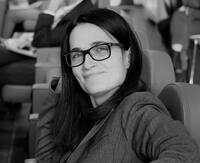 Dr Silvia Pescina is Associate Professor of Pharmaceutical Technology at the University of Parma. Her lecture will focus on
Dr Silvia Pescina is Associate Professor of Pharmaceutical Technology at the University of Parma. Her lecture will focus on 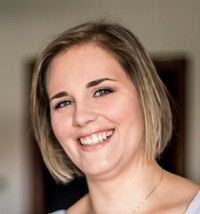 Dr. Sara Perteghella is Senior Researcher at Pavia University. Her lecture will focus on
Dr. Sara Perteghella is Senior Researcher at Pavia University. Her lecture will focus on 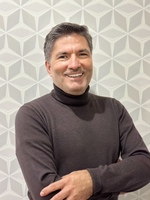 Dr. Antonio Ribeiro is Associate Professor University of Coimbra, Portugal. His lecture will focus on:
Dr. Antonio Ribeiro is Associate Professor University of Coimbra, Portugal. His lecture will focus on: 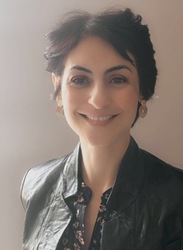 Pr. Kawthar Bouchemalis Professor at Chimie ParisTech – PSL University, France. Her lecture will focus on
Pr. Kawthar Bouchemalis Professor at Chimie ParisTech – PSL University, France. Her lecture will focus on 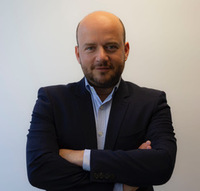 Dr. Alexandre Ceccaldi serves as the General Secretary of the European Technology Platform on Nanomedicine (ETPN) and chairs the Strategic Advisory Board of the ERA4Health EU funding program.His lecture will focus on
Dr. Alexandre Ceccaldi serves as the General Secretary of the European Technology Platform on Nanomedicine (ETPN) and chairs the Strategic Advisory Board of the ERA4Health EU funding program.His lecture will focus on 
